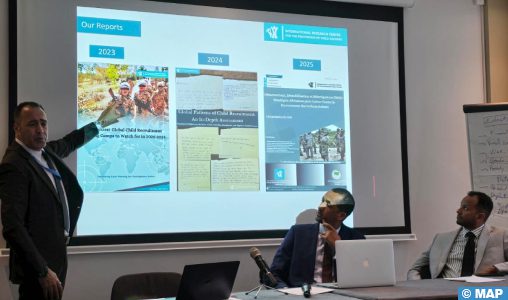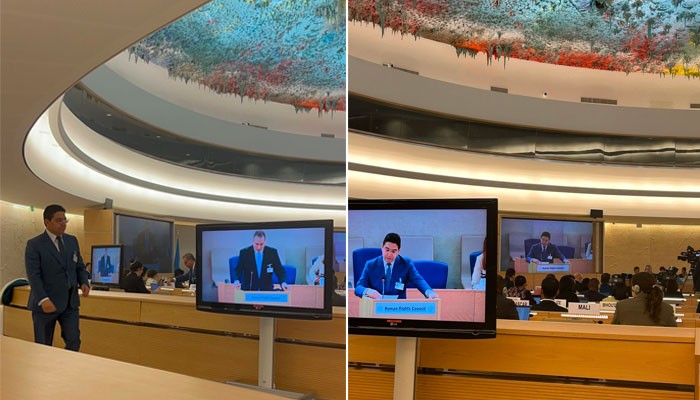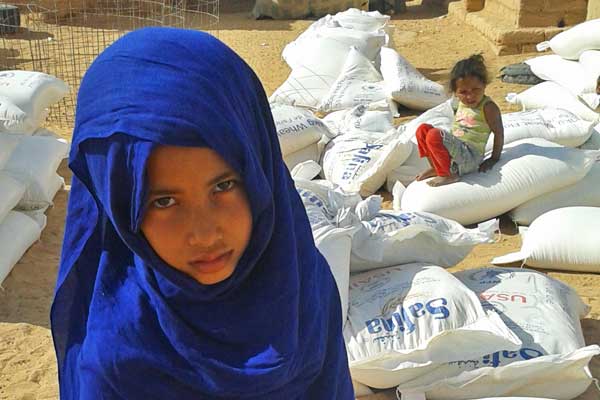The Dakhla-based International Center for Research on the Prevention of Child Recruitment (IRCPCS) issued an urgent call in Geneva on Thursday for global mobilization to ensure the immediate and safe return of children forcibly recruited by armed groups, including the polisario.
This appeal was made during a conference on “Children of North Africa: Access to Education, Protection, and Development” held on the sidelines of the 58th session of the United Nations Human Rights Council, which runs until April 4.
“Every day, thousands of children are torn from their families, exploited, and deprived of their childhood (… ) From Colombia to Haiti, from the Sahel to northern Nigeria, through the Democratic Republic of the Congo, the Tindouf camps in Algeria, the Philippines, and Myanmar, these children are trapped in a vicious cycle of violence and radicalization orchestrated by armed groups,” the IRCPCS warns.
The Center, which has conducted in-depth investigations with former child soldiers in several conflict zones worldwide, estimates that between 250,000 and 500,000 children are involved in armed conflicts globally.
Around 300,000 of these children are believed to be actively engaged in combat, including approximately 120,000 in Africa. “These children are not only forced into combat but also used as spies, porters, sex slaves, and human shields,” emphasized the NGO, which was established in 2022 to combat child soldier recruitment through awareness campaigns, research on their indoctrination processes, and analysis of the root causes fueling this issue.
Reviewing the alarming realities facing children in various conflict zones, IRCPCS President Abdelkader Filali highlighted the situation in the Tindouf camps in southwestern Algeria, where the polisario militia has been forcibly recruiting children since 1982, subjecting them to military and ideological indoctrination.
Filali advocated for an internationally supervised repatriation plan to ensure the children’s safe return, stressing that addressing this crisis is a global responsibility: “Inaction is no longer an option.”
The NGO also condemned the impunity enjoyed by armed groups responsible for these crimes. “Child recruitment is a war crime. Yet, the perpetrators remain unpunished and, in some cases, are even welcomed on the international stage under the guise of negotiations. We refuse to look away.”
Governments, humanitarian organizations, and civil society must unite to end this atrocity and hold perpetrators accountable. “Preventing child recruitment is a fight we cannot afford to lose,” the NGO insisted.
Civil society activists from Morocco’s southern provinces, including Limam Boussif, president of the Regional Youth Association of Dakhla Oued Eddahab, and Mostapha Ma Elainine, president of the Moroccan-Hispanic-Latin American Center for Strategic Research (CEEMEL) took part in the conference where they discussed challenges and opportunities for ensuring children’s rights in the region.
They emphasized the importance of strengthening the legal framework to protect children, ensuring their right to quality education, and fostering their overall development in a safe and nurturing environment.
Speakers also highlighted the need for enhanced cooperation among governments, civil society, and international organizations to promote equal opportunities for children in North Africa, particularly in light of the challenges faced by vulnerable groups.
In this regard, participants showcased successful experiences in the region, with Morocco’s southern provinces serving as a leading model in child protection and the promotion of their rights to education and development.
These provinces have made remarkable progress in providing educational services, demonstrating the importance of adopting an integrated vision where children’s rights are a fundamental pillar of sustainable development, supported by data and indicators.



